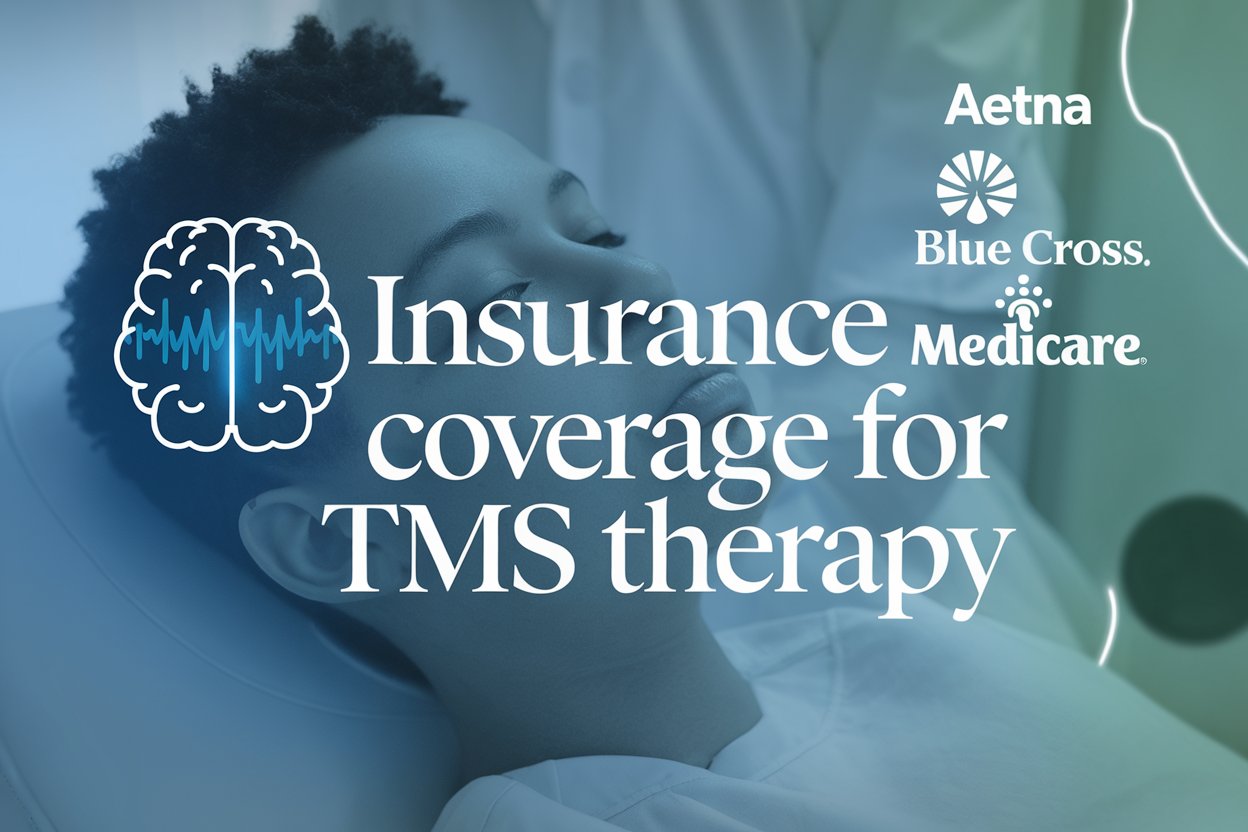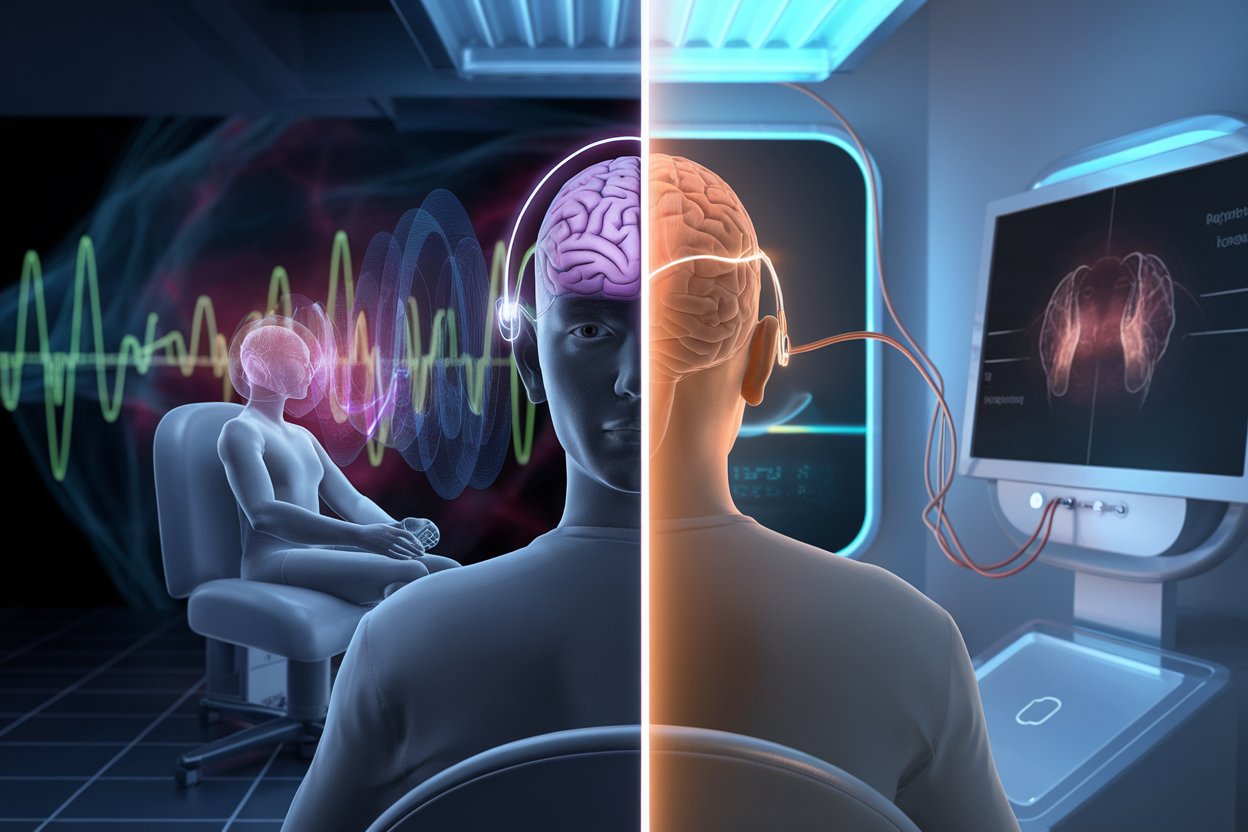Are you looking for effective ways on how to combat depression without medication? Many people prefer non-medical approaches to manage their symptoms, seeking relief through alternative and holistic methods. Whether due to side effects, personal preferences, or a desire for natural treatments, exploring options beyond pharmaceuticals can offer new hope. From lifestyle modifications such as exercise and mindfulness to potential innovative therapies like TMS, this guide will walk you through various strategies to improve your mental health without relying on medication. Let’s dive into how you can take control of your well-being with these empowering tools.
Understanding Depression and Major Depressive Disorder (MDD)
Depression is more than just fleeting sadness. It is a complex mental health condition that deeply affects how a person feels, thinks, and manages daily activities. Major Depressive Disorder (MDD), commonly referred to as clinical depression, involves persistent and intense feelings of sadness or a lack of interest in external stimuli, which can significantly impede daily functioning. Recognizing MDD is crucial as it requires a specific approach to manegement and treatment.
How To Combat Depression Without Medication
Stay Active
Engaging in regular physical activity is a cornerstone for managing depression. Exercise not only improves physical health but also has a profound impact on mental well-being. It stimulates the release of endorphins, chemicals in the brain that act as natural mood lifters. Consistent exercise can be as effective as antidepressants in managing symptoms of depression for some individuals.
Eat Healthy
Diet plays a crucial role in mental health. Consuming a diet rich in omega-3 fatty acids, such as those found in salmon and flaxseeds, and folic acid, which is abundant in spinach and avocado, can help alleviate the symptoms of depression. These nutrients support brain function and can contribute to better mental health.
Get Regular Sleep
Quality sleep is essential for managing depression. Poor sleep patterns can exacerbate the symptoms of depression, making it harder to manage. Establishing a regular sleep routine and creating an environment conducive to rest can help stabilize your mood and improve your overall mental health.
Try Mindfulness
Mindfulness involves being fully present in the moment and engaging with our thoughts and feelings without judgment. Practices such as meditation, yoga, and tai chi can help cultivate mindfulness, which has been shown to reduce stress and improve symptoms associated with depression.
By incorporating these strategies into your daily routine, you can begin to manage your symptoms of depression without relying solely on medication. Each of these approaches offers benefits that can help you regain control over your mood and enhance your quality of life.
If you or someone you know is struggling with depression, these natural strategies may be beneficial as part of a comprehensive approach to mental health. However, it’s important to consult with a healthcare professional for a proper diagnosis and to discuss the most effective treatment plan for your situation.
Adding TMS Therapy to Your Routine
In addition to the natural methods mentioned for managing depression symptoms, Transcranial Magnetic Stimulation (TMS) Therapy has emerged as a compelling non-medication treatment. TMS therapy is a breakthrough for those struggling with major depression, particularly when traditional treatments have not been effective.
What is TMS Therapy?
TMS therapy utilizes magnetic fields to stimulate specific areas of the brain involved in mood regulation. This treatment is particularly focused on the prefrontal cortex, which is often less active in people suffering from depression. By targeting this area, TMS treatment helps to enhance mood and alleviate depressive symptoms.
How TMS Complements Other Depression Management Strategies
While engaging in activities such as exercising, eating well, and practicing mindfulness are crucial for overall mental health, adding TMS can provide a more direct approach to managing symptoms of depression. This therapy is especially beneficial for those who have tried various treatments without sufficient relief. It’s a safe, non-invasive option that typically involves a series of treatment sessions, each lasting about 30-60 minutes over a few weeks.
The Benefits of TMS
- Non-invasive and Drug-free: TMS does not require surgery or additional medication, making it an attractive option for those who prefer to avoid the side effects associated with antidepressants.
- Targeted Treatment: The precise nature of TMS allows it to directly affect areas of the brain associated with depression, potentially leading to more effective outcomes.
- Scientifically Supported: Numerous studies have validated the effectiveness of TMS in alleviating symptoms of depression, particularly for treatment-resistant cases.
By incorporating TMS into your strategy to combat depression without medication, you can enhance your approach to managing mental health, leveraging both natural methods and advanced technology.
If you’re considering this treatment, it’s essential to consult with a healthcare provider who specializes in mental health to discuss whether TMS therapy could be a suitable option for you. Together, you can create a comprehensive treatment plan tailored to your needs.
FAQs About Fighting Depression Naturally: Expanded Insights
Is there a way out of depression without medication?
Yes, managing depression without medication is a viable option for many. Natural methods like exercise, a healthy diet, and mindfulness practices have been proven to help alleviate symptoms of depression. Engaging in regular physical activity boosts endorphins, eating nutrient-rich foods supports brain function, and mindfulness practices like meditation can significantly reduce stress levels. While these strategies can be effective, it’s crucial to remember that depression is a complex condition and what works for one person might not work for another. It’s important to approach treatment holistically and be open to combining different strategies.
What are the three strategies for coping with mild depression?
- Regular Physical Activity: Engaging in regular exercise helps mitigate depression by releasing endorphins, chemicals in the brain that act as natural mood enhancers. Activities like walking, yoga, or even gardening can improve your mood.
- Eating a Balanced Diet: Foods high in vitamins, minerals, and antioxidants can combat the physiological stresses of depression. Focus on a diet rich in vegetables, fruits, lean proteins, and whole grains to support overall brain health.
- Maintaining a Consistent Sleep Schedule: Quality sleep is crucial for mental health. Establishing and maintaining a consistent sleep schedule helps regulate mood and improve brain function.
What vitamin is a natural antidepressant?
Vitamins B-12 and folate are critical for brain health and function as natural antidepressants. These vitamins play key roles in producing brain chemicals that affect mood and other brain functions. Deficiencies in these vitamins can severely impact depression symptoms. Foods rich in Vitamin B-12 include fish, poultry, eggs, and dairy products, while folate can be found in dark leafy greens, fruits, nuts, and beans.
Can you take anything over the counter for depression?
While some over-the-counter supplements like St. John’s Wort or SAM-e are popular for their potential benefits in managing mild depression. It is essential to approach these options cautiously. These supplements can interact with other medications and might not be suitable for everyone. Before starting any new supplement, it’s important to consult with a healthcare provider. This conversation ensures that you understand potential interactions and confirms whether the supplement is appropriate for your specific health needs.
Encouraging Open Dialogue with Healthcare Professionals
Discussing mental health openly with a doctor or psychiatrist can be daunting. However, it is a crucial step in managing depression effectively. Healthcare professionals can provide valuable insights, offer a proper diagnosis, and help craft a personalized treatment plan that might include both natural and medical treatments. If you’re exploring how to combat depression without medication, don’t hesitate to bring up these alternatives during your consultations. Doctors are there to support your health choices and can guide you through the various options, ensuring you choose the safest and most effective strategies for your situation.
Remember, managing depression is a personal journey, and what works for one individual might not work for another. Open communication with your healthcare provider can help you navigate this path safely and effectively.
Take the Next Step Towards Healing
Exploring non-medical strategies to manage depression has opened up various avenues for individuals looking to take control of their mental health. In Phoenix, Arizona, a wealth of resources ranging from local wellness activities to specialized clinics like American TMS offer support for those pursuing these alternatives. Whether you engage in regular physical activity, practice mindfulness, or consider innovative therapies such as TMS, each step you take is a move toward a healthier, more balanced life.
If you’re in Phoenix and struggling with depression, remember that you’re not alone. There are many paths forward, and sometimes, a combination of therapies tailored to your personal needs can be the most effective strategy. Don’t hesitate to reach out for professional advice to tailor a plan that suits your lifestyle and preferences.
Interested in exploring how these treatments can work for you? Contact American TMS Clinics today for a free consultation to see if you qualify for a free egg and psychiatric evaluation. Together, we can find a way to combat depression and help you reclaim your joy and well-being





